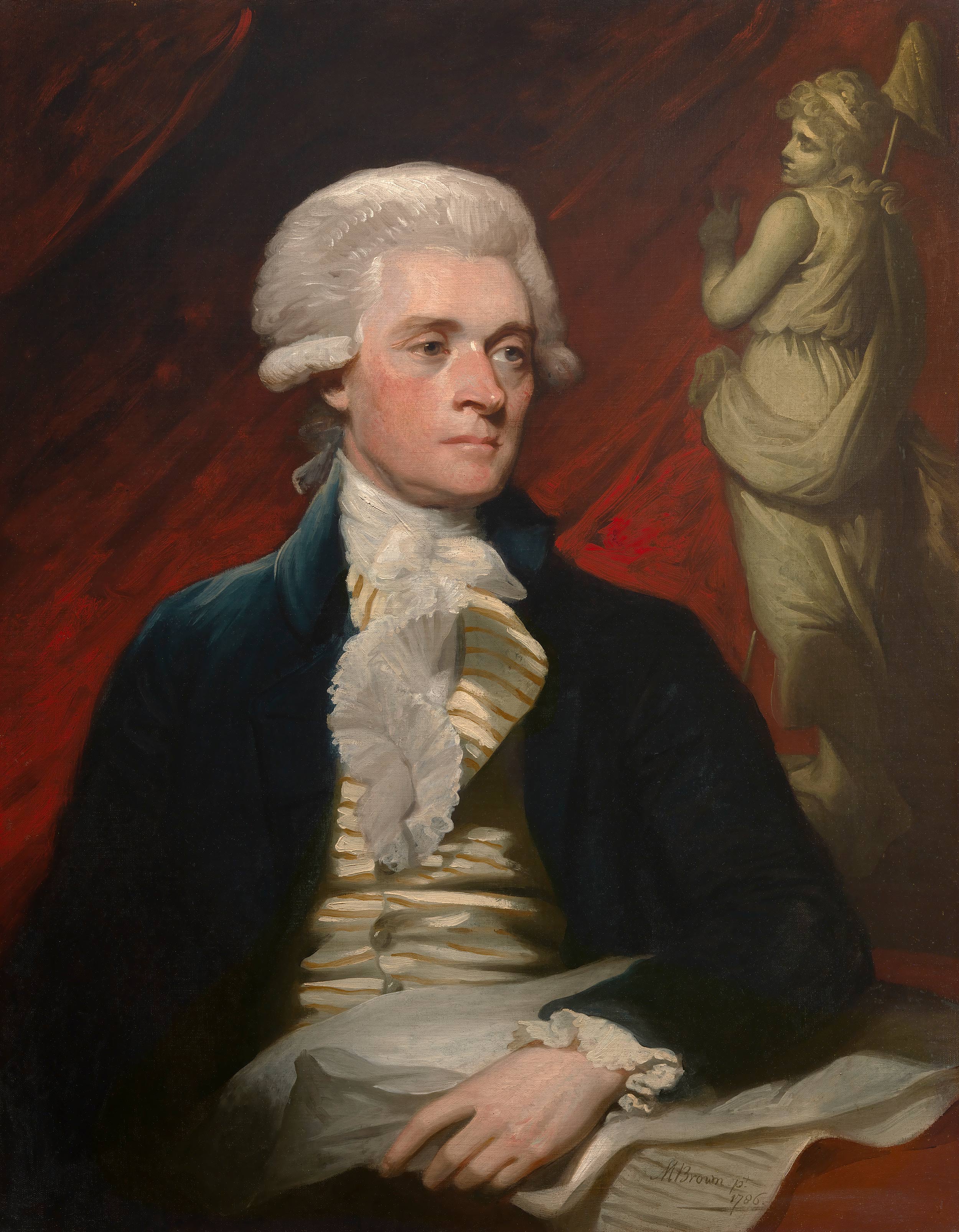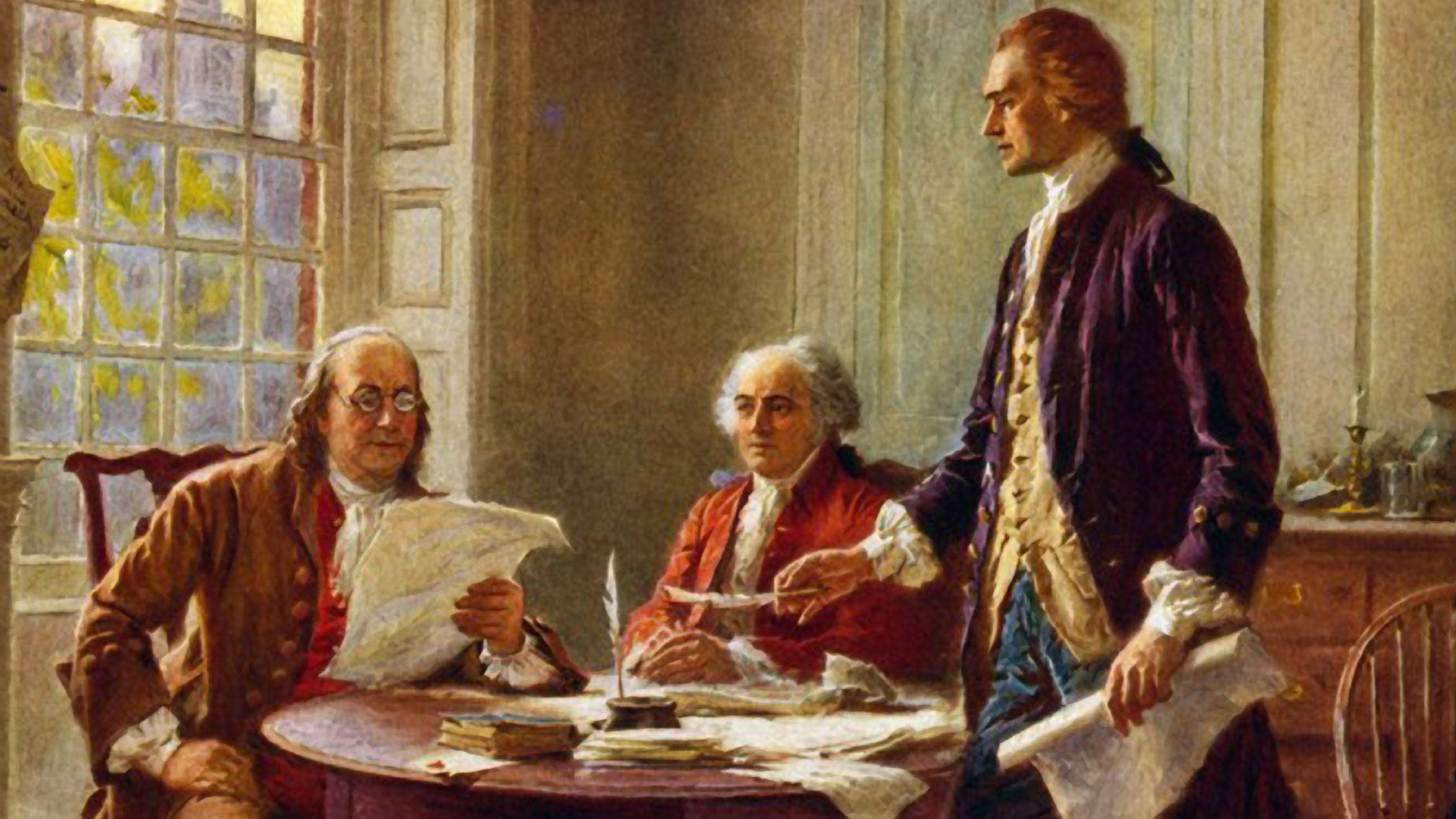Thomas Jefferson: A Complex Legacy
Thomas Jefferson, renowned as the author of the Declaration of Independence and the third President of the United States, was a paradoxical figure. His brilliance, his deep-seated Enlightenment ideals, and his political leadership stand in stark contrast to his profound contradictions, including his ownership of hundreds of slaves and his alleged affair with Sally Hemings.
The Enlightenment Champion
Jefferson was a child of the Enlightenment, an intellectual movement that prized reason, individualism, and limited government. His Declaration of Independence, proclaimed in 1776, enshrined the inviolable rights to "Life, Liberty, and the pursuit of Happiness." These principles became the bedrock of democracy and served as a beacon of inspiration for countless revolutions worldwide.
As a statesman, Jefferson exemplified the Enlightenment ethos. He advocated for religious freedom, education, and the expansion of knowledge. He founded the University of Virginia, which he envisioned as an institution that would "diffuse knowledge among the people." His belief in the power of education extended to the enslaved population, as evidenced by his proposal to establish a school for them.
The Paradox of Slavery
Despite his Enlightenment ideals, Jefferson was a deeply flawed individual. His most glaring contradiction was his ownership of hundreds of slaves, a practice he rationalized as necessary for the economic prosperity of the South. Jefferson's attitudes towards slavery were complex and evolving, influenced by both personal beliefs and the prevailing social norms of his time.
In his earlier years, Jefferson expressed opposition to slavery, describing it as "the most degrading and odious condition." However, as he inherited his father's plantation and acquired more wealth, his views shifted. He began to defend slavery as a social and economic necessity, arguing that it was preferable to the abolition of slavery without compensation.
Jefferson's ownership of slaves had a profound impact on his life and legacy. His relationships with his enslaved people, including Sally Hemings, were complex and controversial. Hemings, an enslaved woman of mixed race, allegedly had a long-term sexual relationship with Jefferson, resulting in the birth of several children.
The Legacy of Jefferson
The legacy of Thomas Jefferson is a complex and contested one. He is rightfully celebrated as a brilliant statesman and the author of the Declaration of Independence. However, his ownership of slaves and his alleged relationship with Sally Hemings cast a long shadow over his reputation.
Historians have grappled with the contradictions of Jefferson's character. Some argue that his personal flaws should not overshadow his contributions to American history. Others contend that his Enlightenment ideals were hypocrisy in light of his slaveholding. The debate over Jefferson's legacy continues to this day, reflecting the complexities of American history and the ongoing struggle to reconcile the ideals of freedom and equality with the realities of racial inequality.
Critical Perspectives
Scholars have offered diverse perspectives on the complexities of Thomas Jefferson.
Annette Gordon-Reed, in her Pulitzer Prize-winning book "The Hemingses of Monticello," meticulously documents the relationship between Jefferson and Sally Hemings, arguing that it was consensual.
Henry Wiencek, in his work "Master of the Mountain: Thomas Jefferson and his Slaves," presents a nuanced portrait of Jefferson's attitudes towards slavery, exploring the internal conflicts he experienced as a slave owner.
Drew Gilpin Faust, in her book "This Republic of Suffering: Death and the American Civil War," examines the role of slavery in shaping the American psyche, including the profound impact it had on Jefferson's life and thought.
Conclusion
Thomas Jefferson remains a towering figure in American history, his legacy a complex tapestry of brilliance and contradiction. As the author of the Declaration of Independence, he articulated the timeless principles of democracy and human rights. As a slave owner, he embodied the deep-seated racial inequality that plagued the nation.
The complexities of Jefferson's character mirror the complexities of American history. His Enlightenment ideals inspired generations to fight for freedom and equality, even as the nation grappled with the legacy of slavery. Jefferson's life and legacy serve as a reminder of the enduring struggle to reconcile our ideals with our actions and the ongoing challenges of creating a more just and equitable society.
Sandra Bullock: The Actress Who Reigns In Comedy And Drama
María Teresa Roca – A Prominent Argentine Actress Known For Her Stage And Film Performances.
Kang Bu-ja: The Actress Who Stirred Controversies With Her Public Behavior
:max_bytes(150000):strip_icc()/Thomas-Jefferson-2955-3x2gty-58b984f33df78c353cdf1fdc.jpg)


